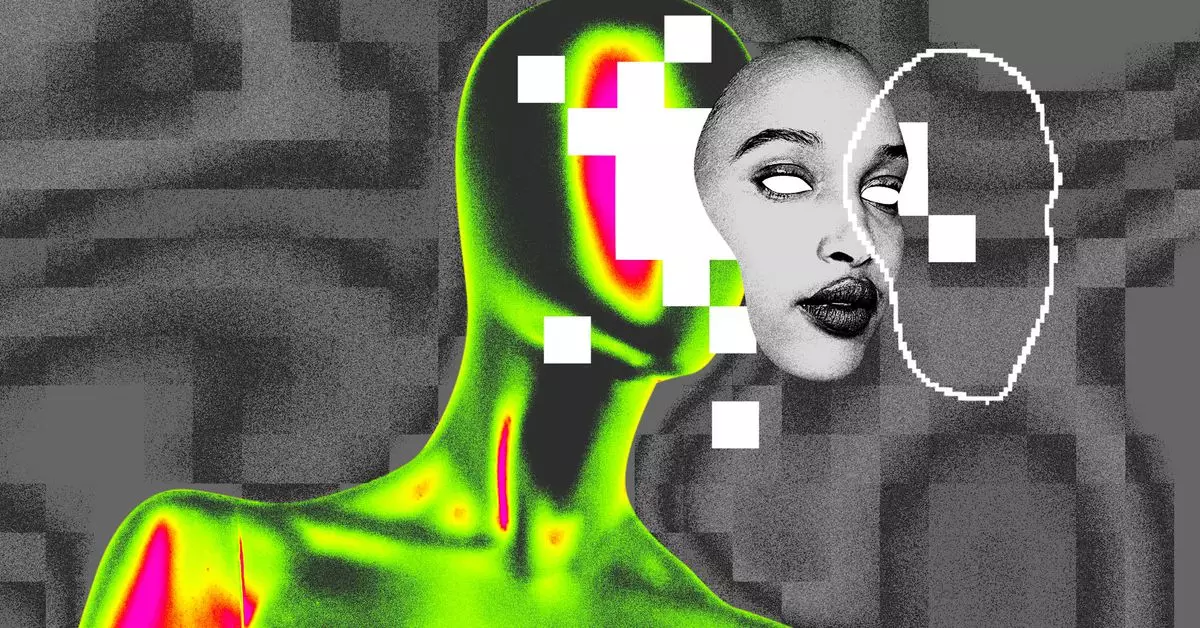In a proactive move directed at fostering a safer online environment for young users, TikTok recently announced it will implement age restrictions on specific beauty filters. This decision follows growing concerns regarding the psychological effects such filters have on teenagers—especially considering many of them leverage these alterations to present an idealized self-image. TikTok’s initiative intends to minimize the mental health risks associated with these beautifying tools, which can warp self-perception and amplify social pressures surrounding appearance.
These changes, slated to be rolled out in the near future, will prevent users under the age of 18 from accessing certain filters that alter physical features. Additionally, TikTok plans to enhance the descriptions of these filters, providing users with clear insights on how these effects manipulate their appearance. The commitment to transparency is crucial in an age where aesthetics dominate social media engagement, and where young individuals may struggle to discern reality from digital enhancement.
Apps like TikTok thrive on driving engagement through creative expression—often featuring trends built around cosmetic alterations that may not accurately reflect reality. Among the many filters that can transform the human face, effects such as Bold Glamour exemplify the issues at hand. Such tools can create a façade of ‘perfection’ that young users may feel pressured to emulate, thereby contributing to an illusory worldview where such edited images are accepted as the norm. The report by Internet Matters, a non-profit organization focused on children’s online safety, underscores the urgency of these changes. It indicates that children often struggle to recognize which images have been digitally manipulated, leading to unrealistic beauty standards and heightened societal expectations.
As TikTok emphasizes safety, it reflects a broader societal recognition of the necessity for greater awareness around mental health, especially within vulnerable demographics. By restricting access to potentially harmful beautifying filters, TikTok is making strides towards combatting the negative mental health impacts associated with social media use.
The announcement was made during TikTok’s European Safety Forum, suggesting that the rollout of these features might first occur in Europe. However, uncertainties remain regarding the global applicability of these measures. As it stands, TikTok has not clarified whether these restrictions will extend beyond European borders, leaving many users worldwide questioning the scope of these developments. Understanding the geographical implementation and restrictions is vital to truly assess the effectiveness of these measures in fostering safe online spaces.
Furthermore, TikTok is set to introduce new resources aimed at improving user safety across 13 unspecified European countries. These resources will directly connect users who report concerning content—such as threats related to suicide, self-harm, hate speech, or harassment—to relevant local helplines. This move not only showcases TikTok’s commitment to user safety but also acknowledges its responsibility as a platform that significantly impacts the daily lives of millions of users.
Christine Grahn, TikTok’s European Public Policy Head, articulated a philosophy that underscores the platform’s dedication to safety and user well-being, stating, “There’s no finish line when it comes to safety and security.” This commitment aligns with the growing recognition of the need for tech companies to take proactive measures to ensure mental health resources are readily available and that users can engage with the platform safely.
In addition, TikTok is reportedly exploring machine-learning technologies designed to identify accounts created by users under the minimum age requirement of 13. This move reflects enhanced vigilance in maintaining compliance with age-related policies, contributing to a more secure virtual environment for younger audiences. Users whose accounts may be deleted due to age violations will also have the opportunity to appeal these decisions, further reinforcing TikTok’s dedication to treating its community equitably.
While TikTok’s changes regarding beauty filters and user safety show promise, they also highlight a significant cultural dialogue about the responsibilities of social media platforms in safeguarding mental health. As the digital landscape continues to evolve, the need for vigilance in addressing the psychological ramifications of social media engagement remains paramount. The influences of beauty filters are just the tip of the iceberg, and it is imperative for tech companies to remain proactive in developing strategies that prioritize the mental wellness of their users.
Ultimately, TikTok’s initiatives represent a critical step forward in recognizing the dual-edged sword of cosmetic technology and its effects on a generation raised in a visually-driven digital age. As mental health continues to shape conversations in the realm of technology, TikTok’s actions may set a precedent for other platforms to follow suit in prioritizing the well-being of their users.

